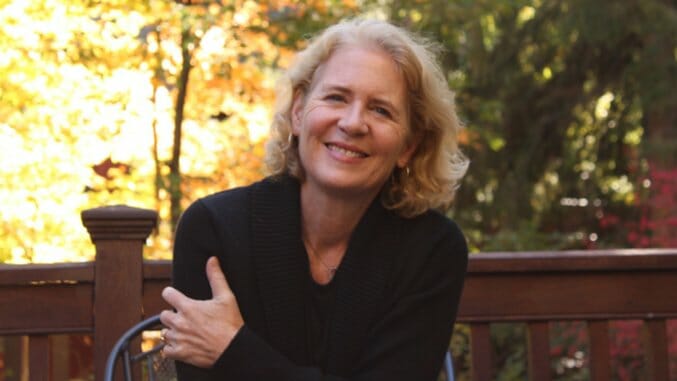Suzanne Berne Unveils Suburbia’s Darkness in The Dogs of Littlefield
Author Photo by Avery Kimmell
Suzanne Berne gradually replaces the charms of suburbia with darkness and disorder in her new novel, The Dogs of Littlefield. Celebrating its U.S. release today, the book explores the secrets behind the façade of manicured lawns and PTA meetings in the seemingly idyllic town of Littlefield, Massachusetts. But despite boasting the highest rate of psychologists per capita and a top-10 ranking in the best places to live in America, Littlefield’s illusion of peace is threatened when someone begins poisoning the town’s dogs.
Paste caught up with the Orange Prize-winning author to discuss the 19th-century novel that inspired her book, the challenge of creating an unheroic heroine and what she’s writing next.
![]()
 Paste: What sparked your imagination to write The Dogs of Littlefield?
Paste: What sparked your imagination to write The Dogs of Littlefield?
Suzanne Berne: I’ve always loved novels that focus on a place, also novels of manners, social comedies. Some years ago I was rereading Elizabeth Gaskell’s Cranford, her novel about an insular 19th-century English hamlet threatened by modernity in the guise of the railway, and I remember thinking, What would this sort of novel look like set in contemporary America? I was especially intrigued by Cranford’s structure—much of it is narrated by a visitor, a sharp-eyed young woman who comments on local customs, preoccupations, misfortunes and romances. So that’s how the novel started.
I began to sketch Littlefield as a refuge from the conflicts and terrors of the “Global Village,” a lovely comfortable suburban New England town—so lovely that it has recently been listed by the Wall Street Journal as one of the Twenty Best Places to Live in America. For my visitor, I created a social anthropologist from the University of Chicago, who arrives to study the effects of global destabilization on a place that should be exceptionally stable. But then someone begins poisoning dogs at the town’s first designated “off-leash” dog park. And so menace begins to loom over the village, which isn’t much of a refuge after all.
-

-

-

-

- Curated Home Page Articles By Test Admin October 21, 2025 | 3:10pm
-

- Curated Home Page Articles By Test Admin October 21, 2025 | 2:57pm
- Urls By Test Admin October 21, 2025 | 2:57pm
- Curated Home Page Articles By Test Admin October 21, 2025 | 2:55pm
-

-

-

-

-

-

-

-

-

-

-

-

-

-

-

-

-

-

-

-

-

-

-

-

-

-

-

-

-

-

-




































